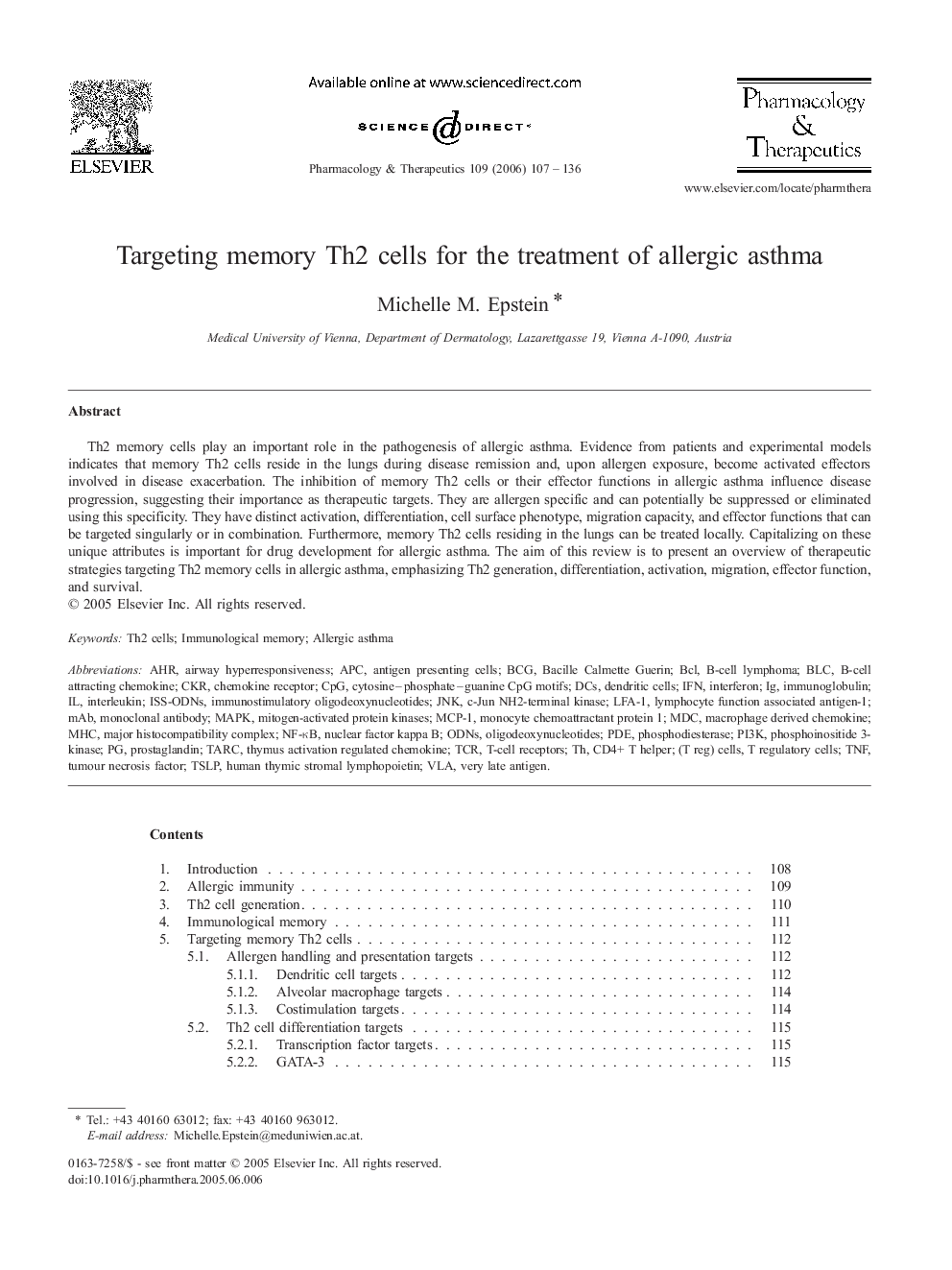| Article ID | Journal | Published Year | Pages | File Type |
|---|---|---|---|---|
| 2564376 | Pharmacology & Therapeutics | 2006 | 30 Pages |
Th2 memory cells play an important role in the pathogenesis of allergic asthma. Evidence from patients and experimental models indicates that memory Th2 cells reside in the lungs during disease remission and, upon allergen exposure, become activated effectors involved in disease exacerbation. The inhibition of memory Th2 cells or their effector functions in allergic asthma influence disease progression, suggesting their importance as therapeutic targets. They are allergen specific and can potentially be suppressed or eliminated using this specificity. They have distinct activation, differentiation, cell surface phenotype, migration capacity, and effector functions that can be targeted singularly or in combination. Furthermore, memory Th2 cells residing in the lungs can be treated locally. Capitalizing on these unique attributes is important for drug development for allergic asthma. The aim of this review is to present an overview of therapeutic strategies targeting Th2 memory cells in allergic asthma, emphasizing Th2 generation, differentiation, activation, migration, effector function, and survival.
